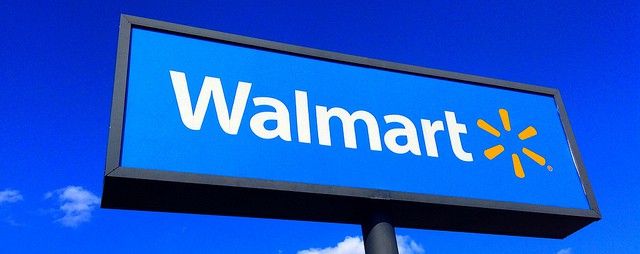In late August, we wrote that Wal-Mart shares were a bargain and Wednesday’s overreaction to management’s guidance presents an even better buying opportunity.
WMT Price Already Implied Significant Profit Decline
At Tuesday’s closing price of $67/share, WMT had a price to economic book value (PEBV) ratio of 0.7. This ratio implies that the market expects Wal-Mart’s profits to permanently decline by 30%. Despite these low expectations, when management announced today that they expect earnings to fall as much as 12% next year, much less than what was already baked into the stock price, WMT fell nearly 10%. Such a negative reaction highlights how short-term focused the market can be.
Wal-Mart Still Has A Strong Business
Wal-Mart has a long history of navigating the ins and outs of the ever-changing retail industry. As we highlighted in our previous report, Wal-Mart has actually grown after-tax profits (NOPAT) by 9% compounded annually since 1998. While profit growth had been slowing as of late, the company still grew NOPAT by 3% compounded annually over the past five years.
Additionally, Wal-Mart has an impressive history of generating returns on the capital invested into its business, something many analysts must be forgetting in light of today’s announcements. Wal-Mart has generated a return on invested capital (ROIC) of 12% or higher in every year since 1999.
Lastly, over the past five years alone, Wal-Mart has generated over $56 billion in free cash flow. With today’s announcements, Wal-Mart is going to be putting its capital to use and create a stronger company.
Management’s Announcement Positions Wal-Mart For Future Profit Growth
While the headlines will trumpet that Wal-Mart’s earnings will decline year-over-year, the underlying decisions being made are aimed at positioning Wal-Mart to not only lead, but also win the retail battle. Far too often, people overlook the competitive advantages that Wal-Mart can extract from its store footprint and distribution systems. Today’s announcements look to strengthen these advantages in two ways:
- Expanded In-Store Pickup: In-store pickup leverages Wal-Mart’s large store base to create shipping cost advantages. Additionally, Wal-Mart is expanding its grocery pickup services which creates benefits including time savings, easier errand planning, and fresher perishables as items are brought to the consumer upon arrival at the store. Ultimately in-store pickup allows Wal-Mart to be more efficient, lower shipping costs, and lower prices.
- Investments In Online Business: There is no doubt that online retail is becoming more important in today’s world. We think it naïve to overlook the fact that Wal-Mart already has a formidable online offering and further investment is a positive for shareholders. Wal-Mart’s ability to connect the online and in-store shopping experience is a unique advantage that will position Wal-Mart ahead of it’s competition.
New Share Buyback Plus Dividend Yields Equal 8%
In addition to the downward guidance, Wal-Mart announced a new $20 billion share repurchase program. This authorization is expected to be used over two years. The repurchase of $10 billion a year would represent 5% of the current market cap and when combined with Wal-Mart’s 3% dividend yield equals an impressive yield of 8%. 8% is a rather nice margin of safety to protect investors while Wal-Mart reinvests in its core business operations.
Shares Present Excellent Buying Opportunity
At its low today, WMT had lost nearly $21 billion in market cap. This rapid price depreciation provides long-term investors with a great opportunity. Wal-Mart itself has said they expect profit growth to return in fiscal 2019 and we too believe that, long-term, Wal-Mart will return to profit growth. In fact, if Wal-Mart can grow profits by just 2% compounded annually over the next decade, the stock is worth $108/share today – an 80% upside.
Disclosure: David Trainer and Kyle Guske II receive no compensation to write about any particular stock, style, or theme.
Click here to download a PDF of this report.
Photo Credit: Mike Mozart (Flickr)
